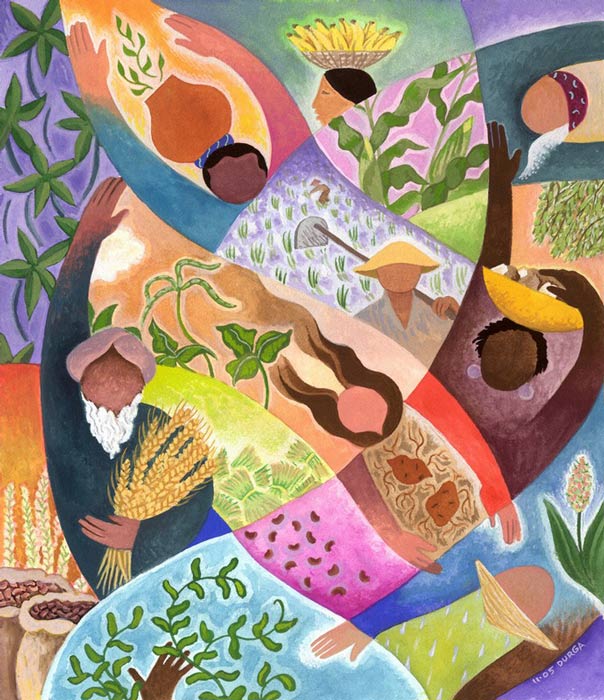
The Search Committee nominated by the Program Steering Committee of the Generation Challenge Program (GCP) is pleased to announce the appointment of Jean Marcel Ribaut to the position of Director of the GCP. Selected from a pool of 37 highly-qualified candidates, Dr. Ribaut’s research experience, management skills, and commitment to the GCP’s mission uniquely qualify him to helm this global program to use the tools of genomics to improve the staple crops of developing countries to alleviate poverty and hunger. ![]() Download PDF
Download PDF
FOR IMMEDIATE RELEASE
13 June 2005
Contact: Jenny Nelson
Telephone: +52 55 5804 2004
Fax: +52 55 5804 2004
Email: j.nelson @cgiar.org
Generation Challenge Program Selects Jean Marcel Ribaut as new director
The Search Committee nominated by the Program Steering Committee of the Generation Challenge Program (GCP) is pleased to announce the appointment of Jean Marcel Ribaut to the position of Director of the GCP. Selected from a pool of 37 highly-qualified candidates, Dr. Ribaut’s research experience, management skills, and commitment to the GCP’s mission uniquely qualify him to helm this global program to use the tools of genomics to improve the staple crops of developing countries to alleviate poverty and hunger.
Trained in plant physiology and genetics at Lausanne University in Switzerland, Dr. Ribaut joined CIMMYT in 1993 as a post-doc in the Biotechnology Program. In 2001, he was appointed Deputy Director of the Applied Biotechnology Program, and in 2004 became the Group Leader for Biotechnology at CIMMYT. During his time at CIMMYT, Dr. Ribaut’s research activities focused on drought tolerance – a major objective of the GCP – and he is now an internationally recognized expert in the field. As Senior Scientist in the Genetic Resources Program, Dr. Ribaut has been in charge of the genetic dissection and marker-assisted selection (MAS) for maize and wheat improvement under abiotic stress conditions and development of new MAS strategies. In collaboration with a number of outside partners, he also pursued activities in metabolites quantification, proteomics, and bioinformatics. In addition to his research expertise and extensive collaborative activities, Dr. Ribaut has been responsible for the capacity building and training of many students and scientists from developing countries. He is also already familiar with the GCP, since he has been involved in the Challenge Program since the earliest stages of its development.
“I joined the CGIAR over a decade ago because I enjoy working in international agriculture very much and I wanted to impact poor farmers’ lives,” he says. “I’m thrilled to join the GCP in this new capacity and use my experience to help shape the important research and capacity building activities of the GCP. It’s a privilege to work with this team of GCP scientists, who are some of the best people working in these fields today and are so enthusiastic about the potential of this program.”
In his first duties as GCP director, Dr. Ribaut envisions consolidating the research agenda to focus on key research themes and to identify a number of flagship projects to prove the concept of the GCP model of using genomics in plant breeding programs to develop and deliver farmer-preferred, stress tolerant varieties faster and more efficiently.
Dr. Ribaut is Swiss-French and is married to Maria de la Luz Lopez Damian. They have three children: Aline (7 years), Yanick (5 years), and Christophe, (10 months). He will be based at CIMMYT with the GCP secretariat. Dr. Ribaut starts at half time with the GCP on 1 July 2005 and full time as GCP director on 1 September 2005. He can be reached at This email address is being protected from spambots. You need JavaScript enabled to view it. .
For additional information, please contact Jenny Nelson, GCP communications coordinator (j.nelson @cgiar.org).
The Generation Challenge Program (GCP) uses modern crop science to address the constraints faced by poor farmers. It develops new methods to exploit the genetic diversity in germplasm collections around the world using technologies such as comparative genomics and molecular markers to solve agricultural problems caused by drought and plant diseases. Capacity building and enabling delivery are important elements of the program. The Generation Challenge Program brings together three sets of partners—the centers of the Consultative Group on International Agricultural Research (CGIAR), advanced research institutes (ARIs), and national agricultural research systems (NARS) in developing countries—to deliver the fruits of the Genomics Revolution to resource-poor farmers.
